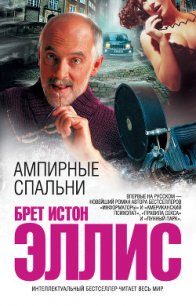His Last Bow - Doyle Arthur Conan (книги бесплатно читать без TXT) 📗
"But first he examined the papers which I had brought. He said that three of them were essential, and that he must keep them. 'You cannot keep them,' said I. 'There will be a dreadful row at Woolwich if they are not returned.' 'I must keep them,' said he, 'for they are so technical that it is impossible in the time to make copies.' 'Then they must all go back together tonight,' said I.
"He thought for a little, and then he cried out that he had it. 'Three I will keep,' said he. 'The others we will stuff into the pocket of this young man. When he is found the whole business will assuredly be put to his account. I could see no other way out of it, so we did as he suggested. We waited half an hour at the window before a train stopped. It was so thick that nothing could be seen, and we had no difficulty in lowering West's body on to the train. That was the end of the matter so far as I was concerned."
"And your brother?"
"He said nothing, but he had caught me once with his keys, and I think that he suspected. I read in his eyes that he suspected. As you know, he never held up his head again."
There was silence in the room. It was broken by Mycroft Holmes. "Can you not make reparation? It would ease your conscience, and possibly your punishment."
"What reparation can I make?"
"Where is Oberstein with the papers?"
"I do not know."
"Did he give you no address?"
"He said that letters to the Hotel du Louvre, Paris, would eventually reach him."
"Then reparation is still within your power," said Sherlock Holmes.
"I will do anything I can. I owe this fellow no particular goodwill. He has been my ruin and my downfall."
"Here are paper and pen. Sit at this desk and write to my dictation. Direct the envelope to the address given. That is right. Now the letter:
"DEAR SIR:
"With regard to our transaction, you will no doubt have
observed by now that one essential detail is missing. I have
a tracing which will make it complete. This has involved
me in extra trouble, however, and I must ask you for a
further advance of five hundred pounds. I will not trust it to
the post, nor will I take anything but gold or notes. I would
come to you abroad, but it would excite remark if I left the
country at present. Therefore I shall expect to meet you in
the smoking-room of the Charing Cross Hotel at noon on
Saturday. Remember that only English notes, or gold, will
be taken.
That will do very well. I shall be very much surprised if it does not fetch our man."
And it did! It is a matter of history – that secret history of a nation which is often so much more intimate and interesting than its public chronicles – that Oberstein, eager to complete the coup of his lifetime, came to the lure and was safely engulfed for fifteen years in a British prison. In his trunk were found the invaluable Bruce-Partington plans, which he had put up for auction in all the naval centers of Europe.
Colonel Walter died in prison towards the end of the second year of his sentence. As to Holmes, he returned refreshed to his monograph upon the Polyphonic Motets of Lassus, which has since been printed for private circulation, and is said by experts to be the last word upon the subject. Some weeks afterwards I learned incidentally that my friend spent a day at Windsor, whence he returned with a remarkably fine emerald tie-pin. When I asked him if he had bought it, he answered that it was a present from a certain gracious lady in whose interests he had once been fortunate enough to carry out a small commission. He said no more, but I fancy that I could guess at that lady's august name, and I have little doubt that the emerald pin will forever recall to my friend's memory the adventure of the Bruce-Partington plans.
The Adventure of the Devil's Foot
In recording from time to time some of the curious experiences and interesting recollections which I associate with my long and intimate friendship with Mr. Sherlock Holmes, I have continually been faced by difficulties caused by his own aversion to publicity. To his somber and cynical spirit all popular applause was always abhorrent, and nothing amused him more at the end of a successful case than to hand over the actual exposure to some orthodox official, and to listen with a mocking smile to the general chorus of misplaced congratulation. It was indeed this attitude upon the part of my friend and certainly not any lack of interesting material which has caused me of late years to lay very few of my records before the public. My participation in some of his adventures was always a privilege which entailed discretion and reticence upon me.
It was, then, with considerable surprise that I received a telegram from Holmes last Tuesday – he has never been known to write where a telegram would serve – in the following terms:
Why not tell them of the Cornish horror – strangest case I have handled.
I have no idea what backward sweep of memory had brought the matter fresh to his mind, or what freak had caused him to desire that I should recount it; but I hasten, before another canceling telegram may arrive, to hunt out the notes which give me the exact details of the case and to lay the narrative before my readers.
It was, then, in the spring of the year 1897 that Holmes's iron constitution showed some symptoms of giving way in the face of constant hard work of a most exacting kind, aggravated, perhaps, by occasional indiscretions of his own. In March of that year Dr. Moore Agar, of Harley Street, whose dramatic introduction to Holmes I may some day recount, gave positive injunctions that the famous private agent lay aside all his cases and surrender himself to complete rest if he wished to avert an absolute breakdown. The state of his health was not a matter in which he himself took the faintest interest, for his mental detachment was absolute, but he was induced at last, on the threat of being permanently disqualified from work, to give himself a complete change of scene and air. Thus it was that in the early spring of that year we found ourselves together in a small cottage near Poldhu Bay, at the further extremity of the Cornish peninsula.
It was a singular spot, and one peculiarly well suited to the grim humor of my patient. From the windows of our little whitewashed house, which stood high upon a grassy headland, we looked down upon the whole sinister semicircle of Mounts Bay, that old death trap of sailing vessels, with its fringe of black cliffs and surge-swept reefs on which innumerable seamen have met their end. With a northerly breeze it lies placid and sheltered, inviting the storm-tossed craft to tack into it for rest and protection.
Then come the sudden swirl round of the wind, the blustering gale from the southwest, the dragging anchor, the lee shore, and the last battle in the creaming breakers. The wise mariner stands far out from that evil place.
On the land side our surroundings were as somber as on the sea. It was a country of rolling moors, lonely and dun-coloured, with an occasional church tower to mark the site of some old-world village. In every direction upon these moors there were traces of some vanished race which had passed utterly away, and left as its sole record strange monuments of stone, irregular mounds which contained the burned ashes of the dead, and curious earthworks which hinted at prehistoric strife. The glamour and mystery of the place, with its sinister atmosphere of forgotten nations, appealed to the imagination of my friend, and he spent much of his time in long walks and solitary meditations upon the moor.
The ancient Cornish language had also arrested his attention, and he had, I remember, conceived the idea that it was akin to the Chaldean, and had been largely derived from the Phoenician traders in tin. He had received a consignment of books upon philology and was settling down to develop this thesis when suddenly, to my sorrow and to his unfeigned delight, we found ourselves, even in that land of dreams, plunged into a problem at our very doors which was more intense, more engrossing, and infinitely more mysterious than any of those which had driven us from London. Our simple life and peaceful, healthy routine were violently interrupted, and we were precipitated into the midst of a series of events which caused the utmost excitement not only in Cornwall but throughout the whole west of England. Many of my readers may retain some recollection of what was called at the time "The Cornish Horror," though a most imperfect account of the matter reached the London press. Now, after thirteen years, I will give the true details of this inconceivable affair to the public.




